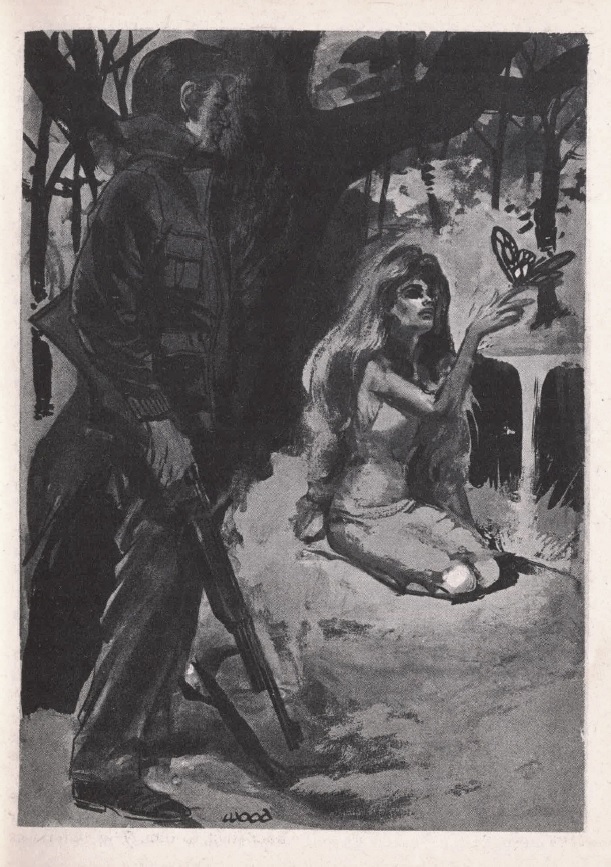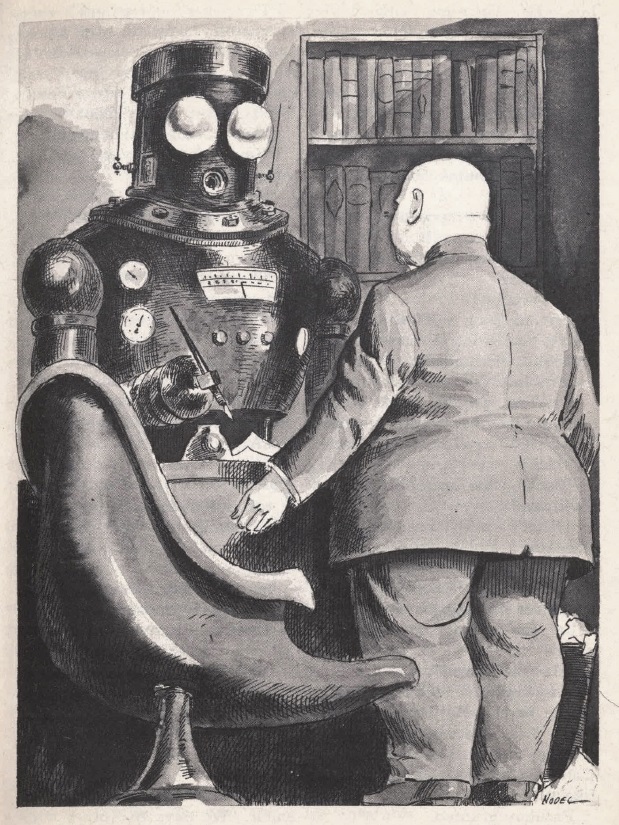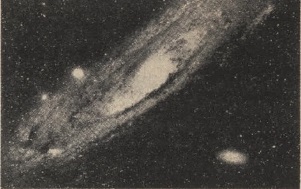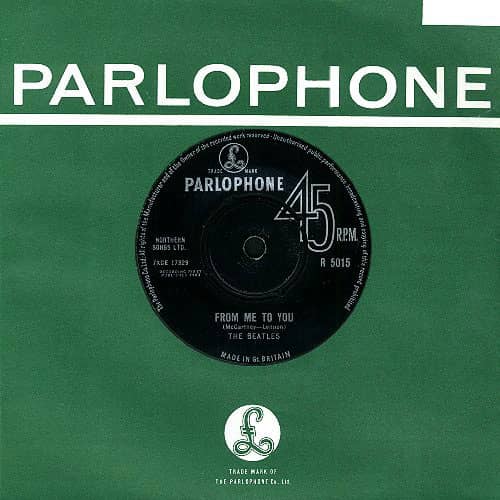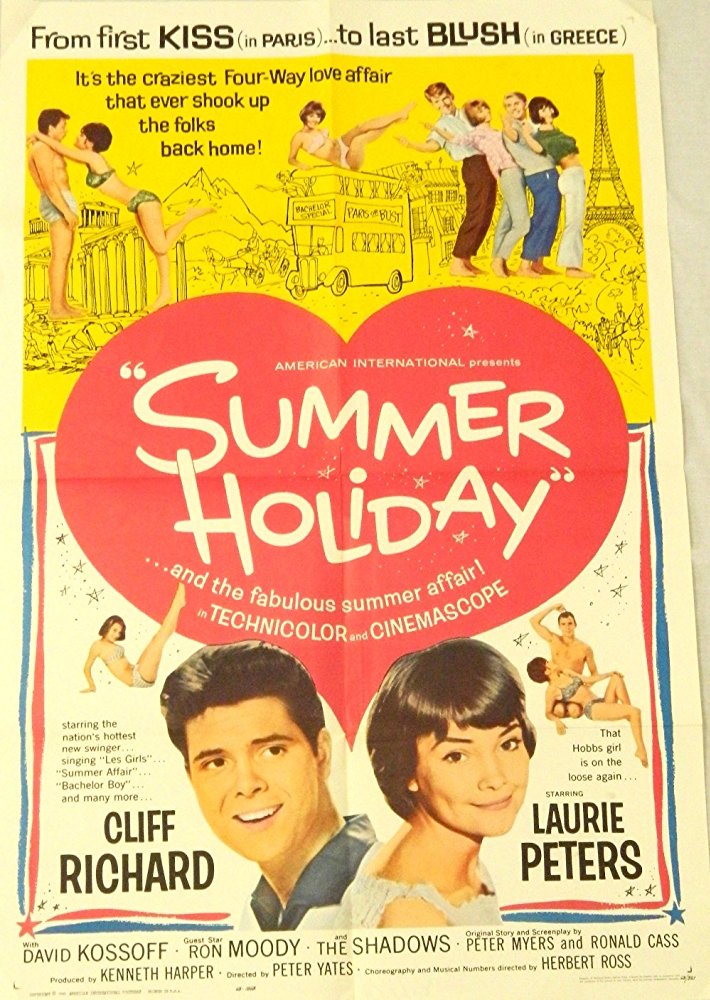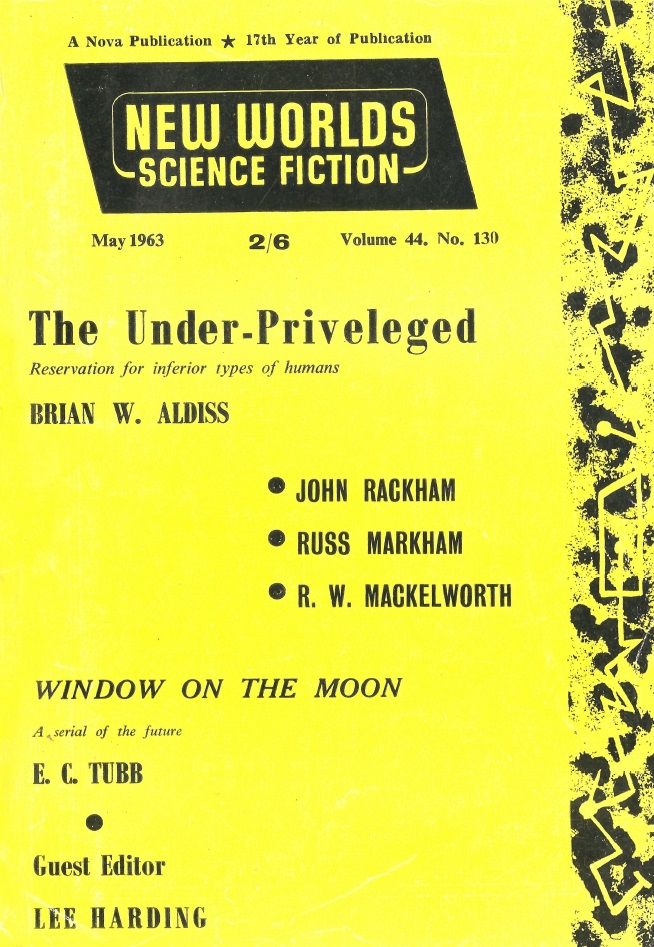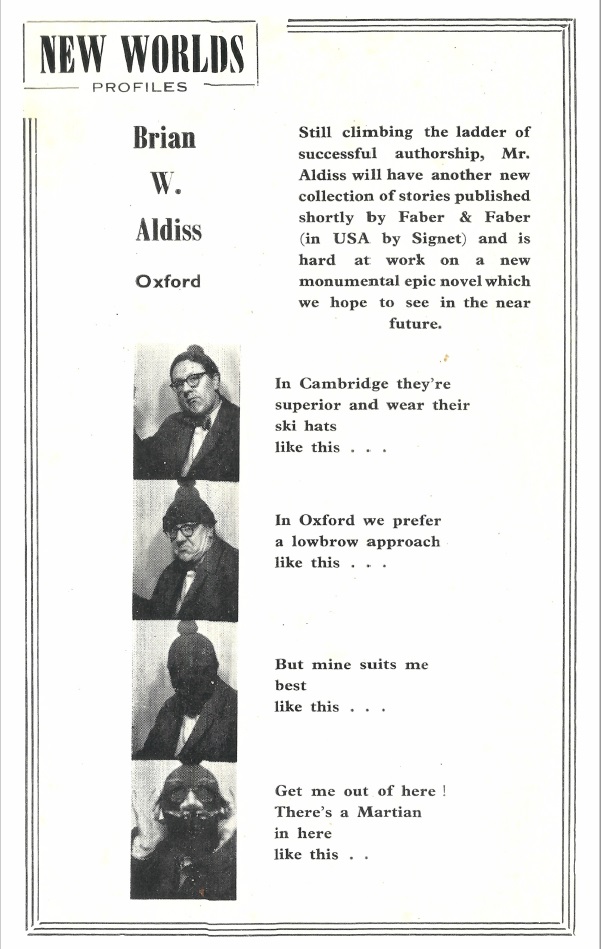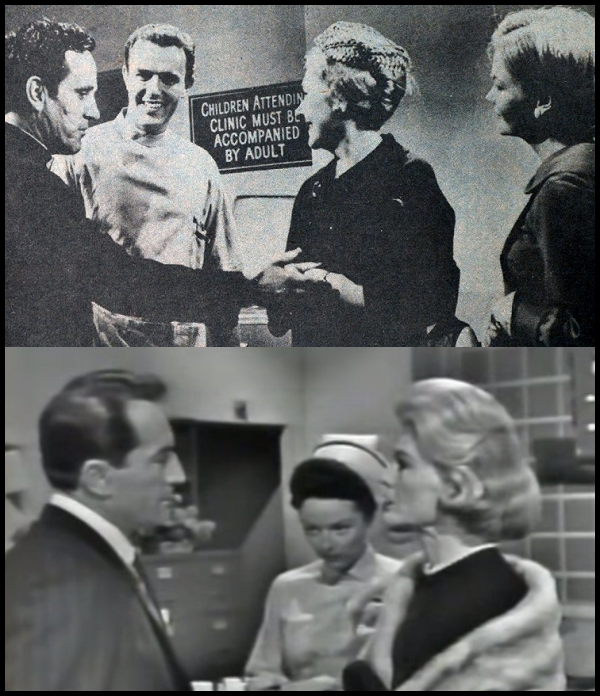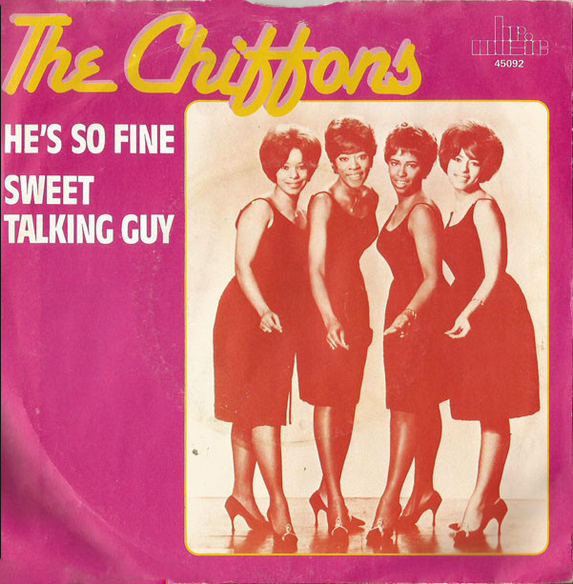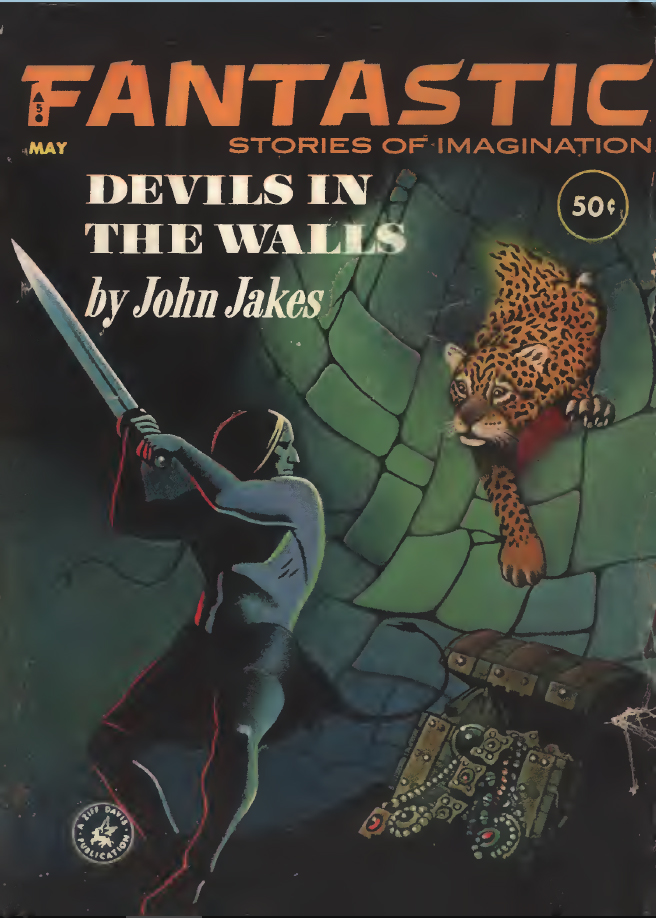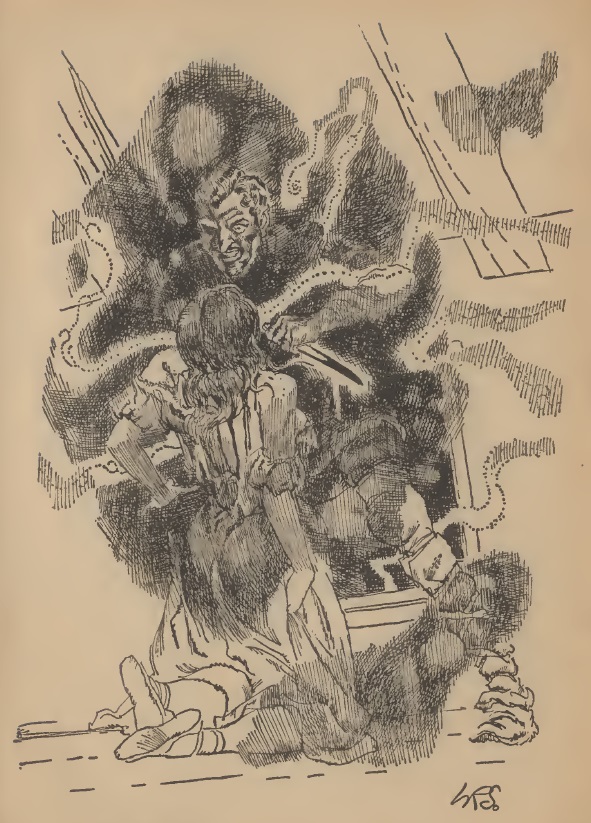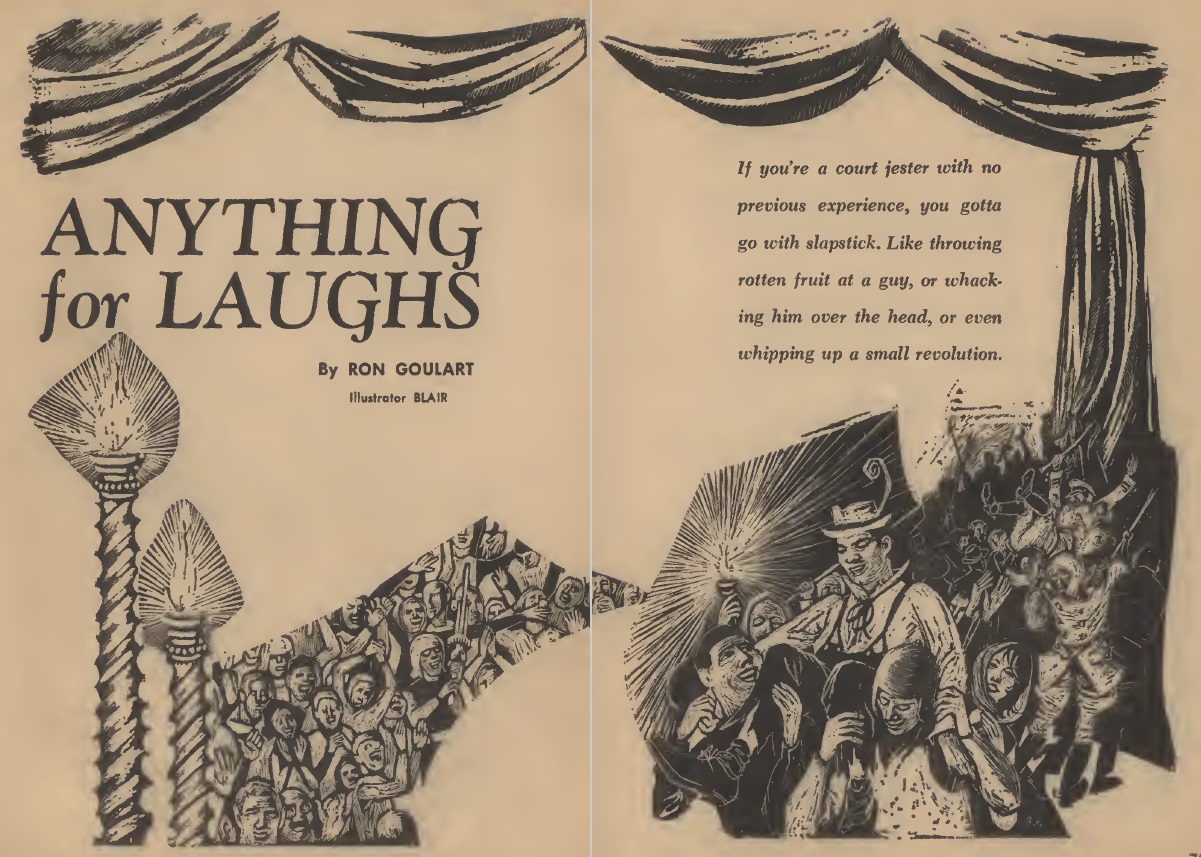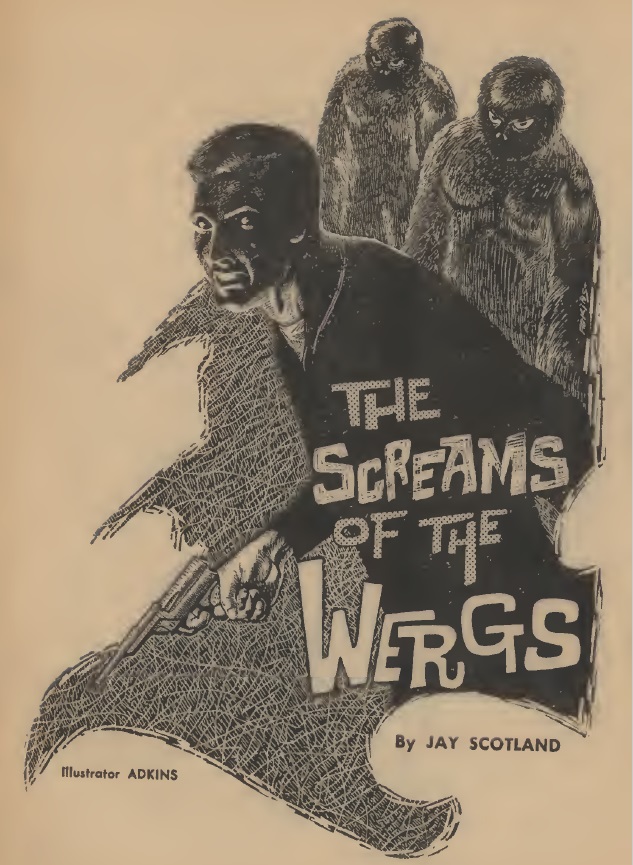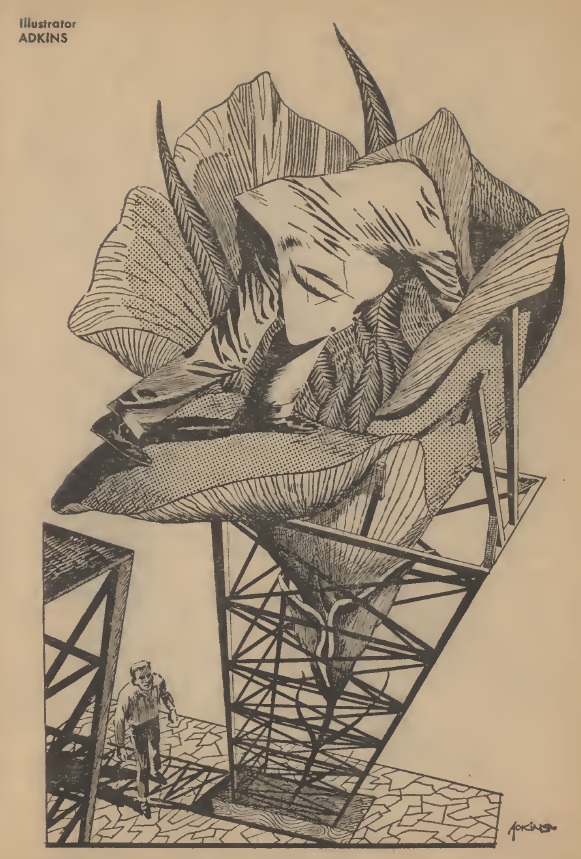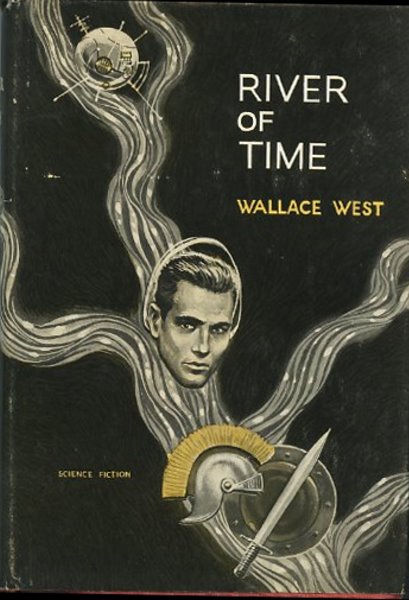
by Gideon Marcus
Every so often, you get a perfect confluence of events that makes life absolutely rosy. In Birmingham, Alabama, the segregationist forces have caved in to the boycott and marching efforts of the Southern Christian Leadership Conference. Two days ago, astronaut Gordo Cooper completed a day-and-a-half in orbit, putting America within spitting distance of the Russians in the Space Race. And this month, Avram Davidson has turned out their first superlative issue of F&SF since he took the editorial helm last year.
Check out the June 1963 Fantasy and Science Fiction and see if you don't agree:
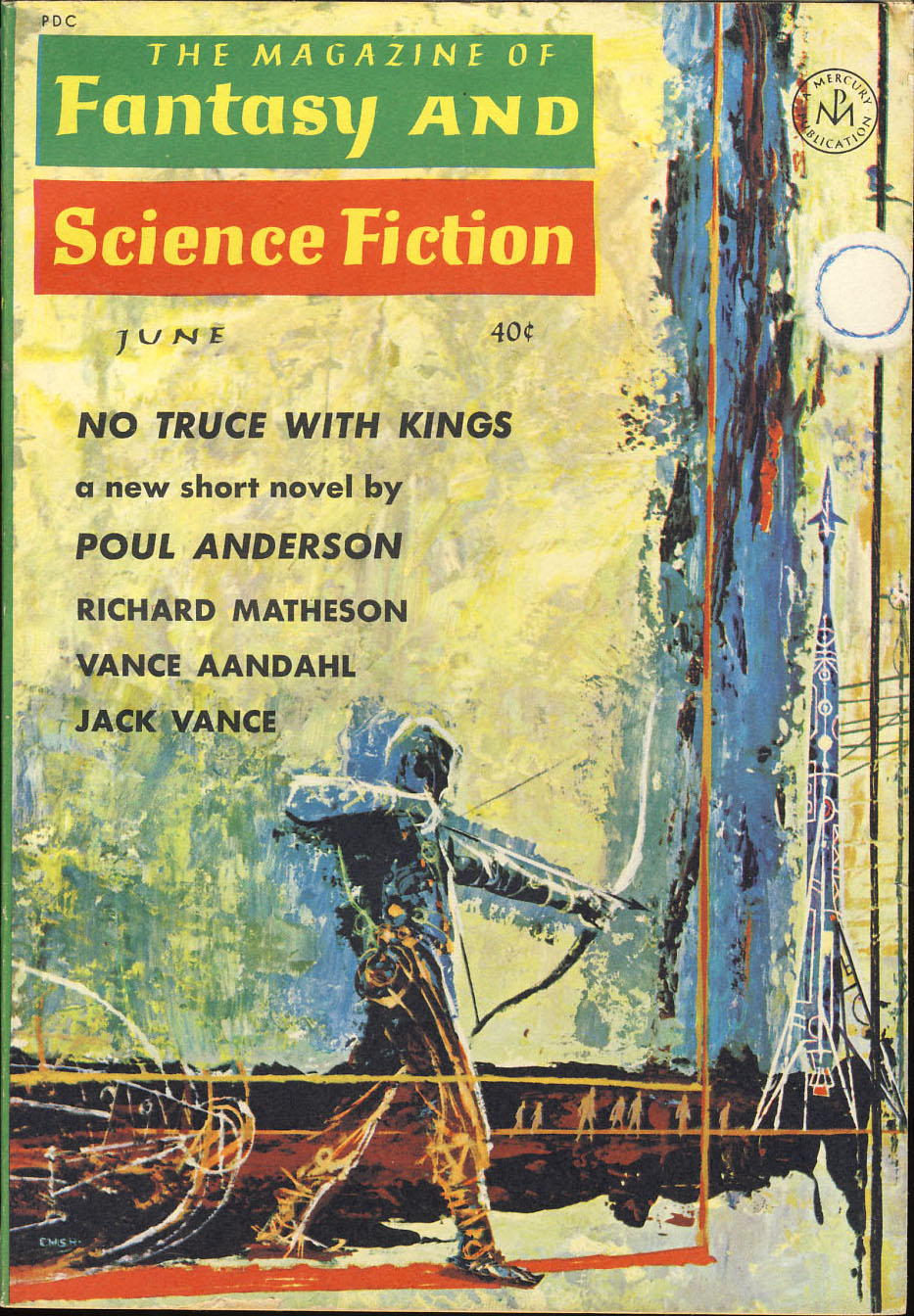
No Truce With Kings, by Poul Anderson
Centuries after The Bombs Fell, the North American continent has scratched its way back to the early 20th Century, technology-wise, but enlightened feudalism remains the order of the day. Kings begins on the eve of civil war in the Pacific States of America after a coup has placed an expansionist government in charge in San Francisco bent on reestablishing Manifest Destiny. Colonel McKenzie of the Sierra Military Command must fight to preserve the old confederacy in the face of superior forces as well as the belligerent "neutrality" of the Esps — communal mystics who seem to have developed terrible psychic weapons.
Don't worry — the story really does belong in this magazine, and not Analog!
Anderson, of course, has been a pleasure to read for many years (since his inexplicable dip in the late '50s.) Kings is a nuanced, character-driven war story filled with lurid descriptions of battles and strategic considerations. It's a bit like The High Crusade played straight, actually. Four stars for the general reader, five if combat is your bag.
Pushover Planet, by Con Pederson
This piece starts well enough, with a pair of dialect-employing space miners landing on an uncommonly idyllic world and meeting an uncommonly friendly alien. The ending, on the other hand, is pure ironic corn, and on the whole, the story feels like an idea Bob Sheckley rejected as not worth his time to write. I don't know who Pederson is any more than Davidson does (apparently, the Editor doesn't even know where to send payment for this story written nearly a decade ago). In any event, I don't think the magazine got its money's worth. Two stars.
Starlesque, by Walter H. Kerr
About an alien stripper who takes it all off. Not worth your time. Two stars.
Green Magic, by Jack Vance
Oh, but Vance's latest work absolutely is! Dig this: beyond our world lie the realms of White and Black magic, each featuring the powers and denizens you might expect. But beyond them, and possessing powers more abstract and strange are the realms of Purple and Green magic (and further still, those of the indescribable colors, rawn and pallow). One Howard Fair would follow in his Uncle Gerald's footsteps to become adept in the wonders of Green magic, no matter the warnings from a pair of its citizens.
A brilliant, unique piece that lasts just long enough and grips throughout. Five stars.
The Light That Failed!, by Isaac Asimov
The Good Doctor continues with his series on the luminiferous ether, this time discussing the famous Michelson-Morley experiment. This test was supposed to show Earth's "absolute speed" through the cosmic medium. Instead, it disproved the ether's existence and set the stage for Einstein's and Planck's modern conceptions of the universe. Vital stuff to know. Four stars.
The Weremartini, by Vance Aandahl
Young Vance Aandahl (no relation to Jack Vance) has produced his first readable story in a long time, about an epicurian English professor whose alternate form is exactly as it says on the tin. Weird, disturbing, but not bad. Three stars.
Bokko-Chan, by Hoshi Shinnichi
A barkeep builds the perfect assistant — a beautiful but empty-headed robot woman to occupy the attentions (and tabs) of the tavern's patrons. Billed as the first Japanese SF story to appear in English, it reads like a barbed children's story. I suspect it's better in the original language (and I'd love to get a copy, since I could read it — I actually was aware of Hoshi-san before he appeared in these pages), but it's not bad, even in translation. Three stars.
Tis the Season to Be Jelly, by Richard Matheson
Only Matheson could successfully manage this tale of post-atomic, mutated hicks. Stupidly brilliant, or brilliantly stupid. You decide. Three stars.
Another Rib, by John J. Wells and Marion Zimmer Bradley
Just 16 men, the crew of humanity's first interstellar expedition, are all that remain of homo sapiens after catastrophe claims our mother star. All hope seems lost for our species…until a native of Proxima Centauri offers to surgically alter some of the spacemen, expressing their latent female reproductive organs.
Rib is an interesting exploration of what it means to be a man, and the varying degree of push required (if any!) for a person to transition from one gender to another. A bold piece. Four stars.
There Are No More Good Stories About Mars Because We Need No More Good Stories About Mars, by Brian Aldiss
Things wrap up with a bitter poem about how science has ruined Mars for SF, but who cares — we'll always have Barsoom. Three stars.

The resulting issue is a solid house made of the finest bricks albeit rather low quality mortar. Good G-d, even Davidson's editorial openings are decent now. Maybe he reads my column…






















